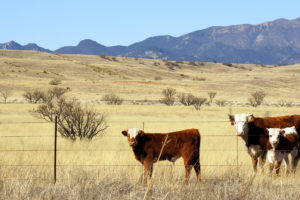April 16th is a big day in my dining room.
I clear the table, floor, piano bench, piano, hanging plants and chairs of dozens of paper piles. I put away the adding machine, calculator, stapler, staple remover, white-out liquid, white-out tape, big binder clips, medium binder clips, itty-bitty binder clips, rubber bands (known as gum bands in Pittsburgh where I grew up), folders, files, legal pads (as well as some that are suspect), post-it pads, yellow markers and all the other paraphernalia of my obligations as an American taxpayer.
I spent 43.5 hours this year organizing income, business expenses, farm expenses, vehicle expenses, home-office expenses, items to depreciate, items to expense, items to itemize, items to stick under the fingernails of terrorists…and so on. This does not count time my wife’s secretary spends gathering her law-practice records.
Both Melissa and I are self-employed. We file an itemized 1040. Once I get all our stuff organized, we send it to a CPA who prepares our return. In time and cash, I estimate it costs us more than $5,000 to file our return.
I have almost no idea how the CPA takes what I provide and turns it into our 1040, which is now as fat as a dictionary. I have no idea whether we have complied with the 70,000 pages of IRS code, tax rulings, publications and interpretive letters—none of which I have read. The few times I tried calling the IRS in past years, I was either on hold until my ear numbed or told to do the best I could and see whether it was right or not.
We were audited once, about 20 years ago. A very nice woman sat at this same dining room table for two days going over our returns for three years. She said I kept very good records. I beamed, eager for praise from my captor.
She wanted to make sure that we were trying to make a profit from farming and not just shielding non-farm income from taxation through farm losses.
She questioned several thousand dollars in fencing, posts and gates. I explained rotational grazing, whereby cattle are moved from one small clean pasture to the next every couple of days to maximize herd gain. Smaller pastures require new internal fencing.
To show her the system, I walked her into the muddy spring fields, pointing out a significant gate, a wire fence of great salience, here a post, there a post. I was dressed for this; she, I should add, was dressed for a business conference with three-inch heels…which gave her great traction.
Revenge was hers, however. My CPA had deducted $500 as a loss, which represented the purchase price of a steer that had died of pneumonia shortly after being trucked here from the auction barn. No, no, she said. You can’t deduct that as a loss.
“Well, if it’s not a loss, what is a loss? I’m out the money I spent.”
“Your loss,” she said, “is reflected in the reduced income you got when you sold the surviving cattle. You’ve taken the loss twice.”
“So if all 60 steers died, that too would not be a loss for tax purposes?” I asked. “Because it would be reflected in my lack of income.”
“Right.”
I no longer question IRS metaphysics. I submit.
Some years ago, I knew a tax protester who said that he no longer filed returns and nothing had ever happened to him. I thought this was pretty neat until he spent time in prison for tax evasion, which he did not like.
“You need a good tax dodge,” a friend said to me. “Everybody who’s anybody has one. About $11.5 trillion is buried in tax havens like the Cayman Islands. They cost the U.S. about $100 billion annually, which everybody else has to make up. But that’s everybody else’s problem, right? Eighty-three of our top 100 publicly traded companies have subsidiaries in such places.”
So I flew to Grand Cayman. When customs asked me why I wanted to enter the island of no taxes, I said, “You held $984 billion of U.S. financial assets as of December, 2008. I need a tax dodge, too.” Honesty is always the best policy when you’re trying to be a tax cheat.
Customs told me to stand in line behind a well-dressed fellow handcuffed to a cargo container with three gold-embossed letters: AIG.
I did as I was told, because I am a good citizen. I stood quietly, shining my flag pin with my sleeve.
“My name is Llewellyn Rutherford,” a distinguished man with a Cambridge accent said. “I represent Ugland House. May we be of service?”
“I want to set up an account with you just like 12,000 highly regarded companies have done. Then my income will come to you, and you send it back to me. Because the Caymans tax nothing and keep everyone’s secrets, I get it back without paying U.S. taxes.”
“We are a law-abiding people.”
“Me too. I just want to abide by some of your laws, instead of some of mine. You are a British crown colony. God save the Queen and pass the over-boiled mutton.”
“Are you going to launder money?”
“No sir. I don’t even launder my sweatshirt, which once belonged to Maynard G. Krebs.”
“How much are we discussing?”
“Oh, I want the Full-Monty dodge. No nicks, ands or buts.”
“How much money, doofus?”
“Twenty five. U.S.” I patted my money belt just in case he hadn’t caught my drift.
“Billions, millions or thousands?” He paused. “Hundreds,” he said with distaste.
“Dollars. I know it’s a modest start. But there’s plenty more where that comes from. Like clock work every month or two. $25.
Mr. Rutherford sighed. “The authorities in this lovely land with no taxes do not choose to serve the likes of you. Try Delaware.”
Back home, I took moral comfort in being the only tax-haven-seeking person or entity the Cayman Islands have ever turned away.
My dining room is back to its pre-1040 existence, free of the evidence of my oppression. In a moment of sheer genius, I finally figured out the best tax dodge ever.
If all my cattle die, I will have no income…and be tax free.
Is that being creative and thinking outside the box, or what?
This content may not be used or reproduced in any manner whatsoever, in part or in whole, without written permission of LANDTHINK. Use of this content without permission is a violation of federal copyright law. The articles, posts, comments, opinions and information provided by LANDTHINK are for informational and research purposes only and DOES NOT substitute or coincide with the advice of an attorney, accountant, real estate broker or any other licensed real estate professional. LANDTHINK strongly advises visitors and readers to seek their own professional guidance and advice related to buying, investing in or selling real estate.









Hey Curtis, we’ve had years like you speak of where all the the calves die from one thing or another. Personally I like to pay a little tax and have live calves, it’s not so depressing!!
Careful what you wish for, you’ll probably get it.
Seriously, I really enjoy your humor and real estate tidbits. Every column brings a laugh or two to this old farmer.
I am still investing in mid-grade farmland. Bought an 80 on March 30, 09 that will cash flow @ 6% this year. Only 7 months interest & no RE tax payment in 2009. That gives the parcel a real boost.
I think that farmland will come to be more desirable to investors as the commercial RE market tanks during the next 18 to 24 months.
No matter how bad the economy becomes, the masses rely on agriculture for ethanol & whiskey, cigarettes, potato chips, hot dogs, and Mt Dew. Yah, they need us!!
What if all of your cattle died at the packing plant and went into the freezer. Would that count?
Tell me more like the 6% cash flow,7 months interest and no Re taxes for 2009.